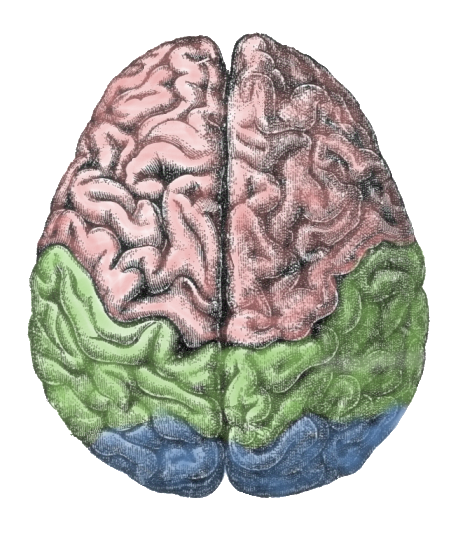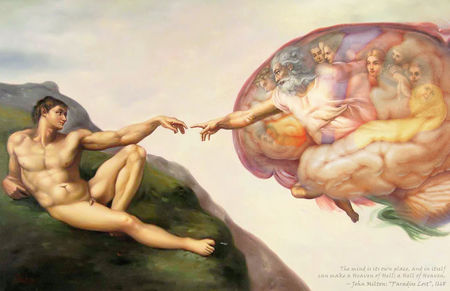Why the Foundational Question about Human Nature is Scientific and Open
by Carl Gillett

Philosophers have long debated what I term the ‘Foundational Question’ about human nature. That is, what deeper kind of thing are we? Answers in philosophy have ranged from an immaterial soul to the presently dominant opposing views that we are either an animal or a psychological system. Recently, scientific and wider debates over human nature have also flared into life, whether about “nature” versus “nurture,” which primate species are our ancestors (Homo habilis etc.), and more. However, these debates rarely engage philosophical discussions because they often implicitly assume that we have now scientifically answered the Foundational Question. Thus anthropologists, primatologists, evolutionary biologists, and many following them, all routinely assume that we are identical to Homo sapiens animals and that evolution established this “fact.”
Dissenting voices on this issue are now emerging in the sciences because some researchers are beginning to defend the view that we are identical to brains rather than animals. During my year at NDIAS, I have been working on reconstructing and assessing the arguments and positions of those who consequently think that the received scientific wisdom on the Foundational Question is wrong. At the outset, I should immediately note that the dissenters take it to be overwhelmingly plausible that we are evolved, since brains are evolved. But if not through a challenge to evolution, then where does the impetus for challenging the received wisdom that we are animals come from? Given the focus on brains, it should come as no surprise that the so-called “neuroscience revolution” is remaking the intellectual terrain. Though the resulting issues are complex, my goal here is to provide a sense of why it is becoming increasingly plausible that we have reopened the Foundational Question.
As the massive media coverage makes us all aware, the neurosciences are making rapid advances at a number of neurobiological levels. The brain is made of billions of neurons with still greater numbers of connections between them. And vast amounts of resources are presently being directed to brain mapping projects focused on understanding these connections and hence the so-called “connectome.” But we have already made profound advances at higher neurobiological levels where we now have increasingly detailed accounts of what I term ‘rich psychological’ properties like remembering, fearing, hoping, etc.
For example, in cognitive neuroscience the work of researchers like Endel Tulving (2002) has provided us with sophisticated accounts of rich psychological properties like episodically remembering, i.e. remembering a particular episode. Whilst in affective neuroscience, writers like Jaak Panksepp (1997, 2012) have given us accounts of properties like fearing. As these researchers emphasize, such accounts are based on multiple lines of evidence, including testing on human subjects, cases of lesions or damage in humans, evidence from animal studies, some evidence from molecular and cellular levels and findings from imaging studies.
This work on our rich psychological properties has provided us with well confirmed hypotheses that illuminate what philosophers term the “roles” of such properties. Thus episodic memories are individuated by being produced by sensory organs, like eyes, producing other rich psychological properties, and producing muscle stimulations, usually in combination with other rich psychological properties. Given the nature of these characteristic productive roles, we can provide plausible arguments about which kind of individual, i.e. animal or brain, instantiates remembering, fearing, etc. A wide range of individuals can be considered and a number of reasons offered, but let me stick to the most obvious of each. So let us assume the candidate individuals are an animal or a brain. And let us note that scientific notions of parthood plausibly imply that parts and wholes do not productively interact. But eyes and muscles are parts of animals; the animal does not productively interact with its own eyes or muscles and hence does not play the right productive role to instantiate rich psychological properties. In contrast, the brain does productively interact with sensory organs and muscles, since our physiology is constructed to facilitate just such interactions. Thus our new neuroscientific accounts of rich psychology plausibly support such properties being instantiated in the brain.

In fact, this is just what working scientists, like Tulving, Panksepp, and many others increasingly assume. Thus researchers have moved from describing remembering as a “psychological” property to terming it a “neurocognitive” property. Wittgensteinian philosophers (Bennett and Hacker 2003; Pardo and Patterson 2013) increasingly attack such scientific practices as committing a “mereological fallacy” of ascribing properties of wholes to their parts. Such critics assume scientists have unwittingly violated our ordinary practices of ascribing rich psychology to animals rather than their parts, including any organ like the brain. However, the critics are missing the detailed theoretical arguments of the type I sketched above that justify the scientific practices. Neuroscientists are not falling into a fallacy, but are instead committed to a rich, explanatorily successful set of hypotheses supported by multiple lines of evidence. It is this theoretical framework that underwrites the scientific practice of ascribing rich psychological properties to brains rather than animals and which hence also challenges the everyday practices of ascribing rich psychology to animals that the Wittgensteinians prioritize without any similar theoretical defense.
I contend that these developments in the neurosciences necessitate our adopting a new account in the foundations of neuroscience that I term ‘Expansive’ materialism, since the view frames the point that the neurosciences have recently expanded our understanding of the properties of brains to include rich psychological properties like remembering, fearing, etc. Crucially, Expansive materialism takes the sciences to posit rich psychology but at the highest neurobiological level since this materialism accepts what we might term “expansive” (or “thinking”) brains that instantiate rich psychology. Expansive materialism thus contrasts with both of the opposing views that presently dominate the foundations of neuroscience and which were each thrown up in response to much earlier developments in the sciences.
On one side, inspired by the neuroscience of the 1970s and 1980s, focused on the molecular and cellular levels, we have the ‘Eliminative’ materialism of writers like Paul and Patricia Churchland (1981, 1986) that contends rich psychological properties will have no place in the sciences. However, cognitive and affective neuroscience now routinely posit rich psychological properties at the highest neurobiological level, so we should favor Expansive materialism over Eliminativism. On the other side of the current debates, driven by the emergence of cognitive science, in the 1960s, ‘70s and ‘80s, we have what I term the ‘Separatist’ materialism attributed to Jerry Fodor (1968, 1974), and others, that contends the sciences should study rich psychological properties, but claims that rich psychological properties are instantiated in a level of individuals above the brain. In this case, Expansive materialism should be preferred over Separatism given our new evidence that rich psychology is plausibly instantiated in the brain.
The latter illustrates some of the deep changes in the intellectual landscape wrought by the neuroscience revolution. And these implications plausibly extend to our understanding of our deeper nature. Neuroscientific evidence is all too often associated in the media with “nihilist” positions that claim that the neurosciences show that the self and ourselves are illusions (Metzinger 2009, Hood 2012). But our brief survey now allows us to appreciate why a novel positive position about our natures actually falls from the scientific development. For example, prominent neuroscientists like Panksepp, or Michael Gazzaniga (2005), are thus increasingly defending the view that we are identical to expansive brains as positions on the Foundational Question. And, once again, we can quickly appreciate the argument behind this contention.
We all routinely assume the truth of what I call the ‘Thinker Thesis’: that you are identical to the individual in your chair that instantiates the properties of remembering, fearing, thinking, etc. However, as we just outlined, and as these neuroscientists are well aware, the neuroscience revolution supports the conclusion that the brain in your chair instantiates the properties of remembering, fearing, thinking, etc. So, applying the Thinker Thesis, the obvious conclusion is that you are identical to a certain brain. Since brains and animals are not identical, we can thus also conclude that you are not identical to an animal. We are consequently led to a new answer to the Foundational Question—you are an expansive, or thinking, brain embodied in a certain animal whose body it controls and experiences as itself.
At this point, you are probably writing off my claims, and the view that we are brains, as just the kind of implausible speculation that philosophers churn out when we have obvious, and overwhelming, evidence to the contrary. So let us briefly examine the putative evidence that supports the claim that we are identical to animals, for I suggest it looks questionable. This evidence appears to take two main forms for most of us. First, though rarely discussed by philosophers, there is the evidence of our own lived experience. And, second, as I noted above, there is the putative “fact” that evolution establishes that you are identical to a Homo sapiens animal.
The first kind of support is easy to appreciate. Right now you are having an experience of your body or a “proprioceptive” experience. And you directly experience certain fingers and arms, for example, as yours, as owned, or simply just as you. But if fingers, arms, etc. are you, then you are plausibly a body and hence a Homo sapiens animal. We can thus see why our lived experience drives a deeply compelling intuitive judgment that we are animals.
In response, however, we need to mark some of the recent findings that the neuroscience revolution has supplied about our proprioceptive experience. First, we now know that the ownership aspect of our experience can be turned off. For instance, there are people with brain lesions who experience their limbs but do not experience them as their own. Like all aspects of our experience, we can thus see that ownership is a constructed aspect of this representation. Second, and more importantly, we have scientific accounts of the characteristic role of the property of proprioceptively experiencing which, for example, is produced by certain receptors in the limbs, produces various other rich psychological properties, and produces muscle stimulations, in association with other rich psychological properties. But, once again running the type of argument about the productive roles of properties sketched above, we may thus conclude that proprioceptive experience is instantiated in the brain. Applying the Thinker Thesis we can thus use our bodily experience to show we are identical to a brain and not an animal. It therefore appears that, however deeply they sway us, our intuitive judgments based upon our lived experiences are unreliable and should not be trusted.

What about the evidence from evolution? Basically, in the nineteenth and twentieth centuries, something like this little argument was used to dispatch the previously dominant view that we are identical to a kind of individual descended from individuals directly created by God:
(1) You are either not evolved and a kind of individual descended from individuals directly created by God, or you are evolved and are identical to an animal.
(2) You are evolved.
Therefore, from (1) and (2):
(3) You are identical to an animal.
Against the background of this argument, offered in the scientific context of earlier debates in the last century, one can see why so many scientists assume evolution establishes we are animals.
The problem is that premise (1) is now either known to be false or at the least not known to be true. Brains and other organs are evolved. And given the arguments outlined above it is now plausibly a live option that we are the kind of brain illuminated by the neuroscience revolution. Consequently, we can now only safely assume this premise:
(1*) You are either not evolved and a kind of individual descended from individuals directly created by God, or you are evolved and identical to an animal, or you are evolved and identical to a brain.
Slotting (1*) into the argument, rather than (1), we can still knock out the claim that you are a directly divinely created kind of individual, but we can now only conclude that you are either identical to an animal or identical to a brain.
So, I suggest, there are good reasons to doubt that evolution establishes you are an animal. And, if one takes rich psychology to be central to our natures, as our endorsement of the Thinker Thesis suggests we do, then one can wonder how evolutionary biology alone could have resolved the Foundational Question prior to the development of scientific accounts of rich psychology? One might thus be unsurprised that the rise of the new sciences of the mind/brain, with their findings about rich psychology, should have deep implications about how the Foundational Question should, and should not, be answered.
In finishing, I should note that almost every stage of my argument is contentious. My claims about the foundations of neuroscience, my arguments about what we are, or about experience and evolution, and more, will all be disputed. But my aim in such a short piece has not been to establish such claims. Instead, my detailed goals have been two-fold. On the negative side, I hope I have provided a sense of why there are now scientific reasons to doubt that we are identical to animals—or at the very least to acknowledge that claiming we are animals requires a defense that is presently all too rarely supplied in the sciences and wider debates. Whilst on the positive side, I hope I have highlighted the increasingly good reasons we have to believe that we are identical to the kinds of expansive brains illuminated by the neuroscience revolution.
Overall, I hope to have given you a sense of why some scientists are beginning to argue we may not be what the sciences have thought we are for the last century. Buckle-up for the jarring set of debates that will hit us over the coming years. For the Foundational Question about our deeper natures is scientific, open once again, and we are rapidly piling up findings suggesting an answer that is alien both to our ordinary ways of thinking of ourselves and to the received scientific wisdom as well.
Carl Gillett
2013-2014 NDIAS Fellow
Professor of Philosophy, Northern Illinois University
References
Bennett, M.R. and Hacker, P. M. S. 2003: Philosophical
Foundations of Neuroscience. Oxford: Blackwell.
Churchland, P. M. 1981: “Eliminative Materialism and the
Propositional Attitudes.” Journal of Philosophy 78: 67-90.
Churchland, P. S. 1986: Neurophilosophy: Toward a Unified
Science of the Mind/Brain. Cambridge, MA: MIT Press.
Fodor, J. 1968: Psychological Explanation. New York:
Random House.
---. 1975: The Language of Thought. New York: Crowell.
Gazzaniga, M. 2005: The Ethical Brain. New York: Dana Press.
Hood, B. 2012: The Self Illusion: How the Social Brain Creates
Identity. New York: Oxford University Press.
Metzinger, T. 2009: The Ego Tunnel. New York: Basic Books.
Panksepp, J. 1997: Affective Neuroscience. New York: Oxford
University Press.
Panksepp, J. and Biven, L. 2012: The Archaeology of Mind.
New York: Norton.
Pardo, M. and Patterson, D. 2013: Minds, Brains, and Law:
The Conceptual Foundations of Law and Neuroscience.
New York: Oxford University Press.
Tulving, E. 2002: “Episodic Memory: From Mind to Brain.”
Annual Review of Psychology 53: 1-25.